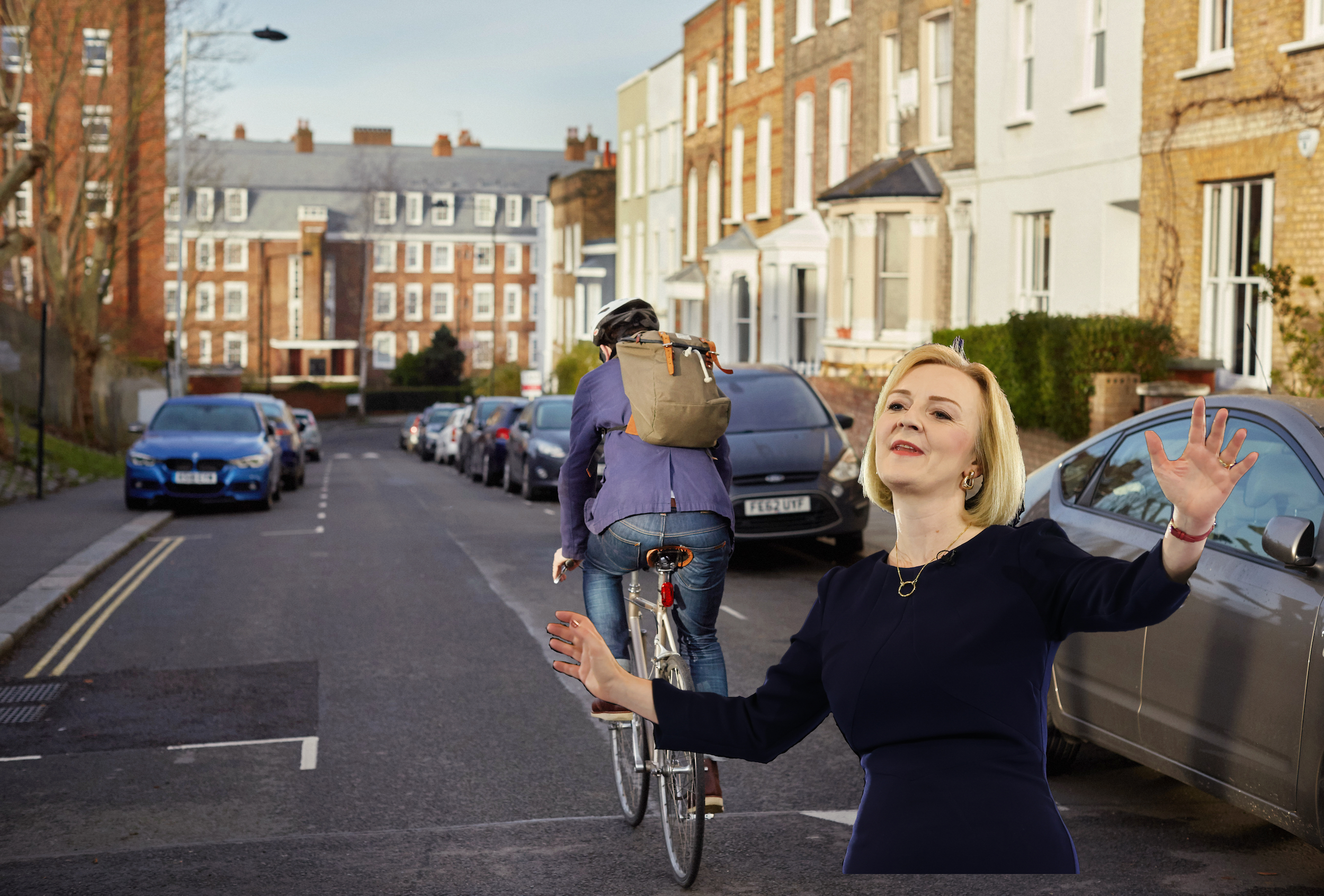What does Liz Truss as prime minister mean for cycling in the UK?
The new PM is not as clearly pro-active travel as Boris Johnson, but it might not matter


The latest race content, interviews, features, reviews and expert buying guides, direct to your inbox!
You are now subscribed
Your newsletter sign-up was successful
The king is dead, long live the queen.
As of Monday afternoon, the UK has a new prime minister, the fourth different Conservative in a decade to take on the role. There are a million different takes on what Liz Truss replacing Boris Johnson will mean for the country at large, with the cost of living crisis and the energy apocalypse looming over the incoming PM, who has had few answers so far.
However, what will Truss's premiership mean for cycling in this country? While cycling might have dropped to pre-pandemic levels, it remains a very big part of the future of travel, especially if the climate crisis is to be taken as seriously as it needs to be.
Boris Johnson was many things as a prime minister, and the long list of scandals he was involved in during his relatively brief tenure just about says it all; there are many, many things to criticise him for. However, one thing he has been consistent on over his career as a politician, from mayor of London to prime minister, is his love of cycling.
During the pandemic, he promised to usher in a "new golden age for cycling" in the UK, with £2 billion put towards active travel in this country. Whether it actually transpired is another question, with many councils backtracking on temporary infrastructure or low traffic neighbourhoods put up during lockdown. Johnson was definitely on board with it, though.
The creation of Active Travel England as a quango and Chris Boardman being appointed as its first commissioner could still be a watershed moment for walking and cycling in this country, but we are yet to really see the fruits of this yet.
In opposition to the actually-a-cyclist Johnson, Truss is a 'true blue' Tory who has not been scared to bang the populist drum during her leadership campaign. The former foreign secretary even admitted that it was fair to say that her planned tax cut would benefit the highest earners 250 times more than the poorest, arguing it was wrong to view all economic policy through the “lens of redistribution”, during an interview with the BBC on Sunday.
The latest race content, interviews, features, reviews and expert buying guides, direct to your inbox!
Which might seem like she would be less keen than Johnson on the cheap, egalitarian, environmentally friendly travel cycling offers those, particularly in cities.
However, in response to a letter from Conservative Friends of Cycling, a representative of Truss said: "I know Liz is looking forward to working with the cycling community to improve access to cycling and promote their interests."
The response read: "Good transport links are central to Liz’s plans to turbocharge the economy and unleash the potential of the private sector – we need to better connect every part of the UK to deliver this goal. That is why Liz has committed to build the infrastructure this country needs, and this includes infrastructure for cycling.
"This will help to get our country growing again — ensuring people can access good jobs, good schools, and good high streets wherever they live.
"Upgrading local transport links in cities and communities will connect people to the places they want to be. We will deliver more frequent and better integrated transport links in the places that need it most — employing the latest technology to make it easier to move across all modes of transport, ensuring people are not limited [in] how they want to travel by the places they live.
"We have seen the growth of cycling in our cities and towns — and cycling as a healthy method of transport should continue to be promoted. Liz is committed to levelling up in our transport sector, working to create an environment that promotes cycling and ensures it can continue to be a huge part of our society."
All of which sounds very encouraging, but behind the nice words, there are fears that cycling is an easy target for a Conservative Party keen to get stuck into culture wars. This can be seen in the rhetoric used by current transport secretary Grant Shapps, who has criticised rule-breaking cyclists in recent weeks, and also suggested that bikes should have licence plates, a policy he then rowed back on.
Last week, Truss suggested that she was "prepared" to look at getting rid of speed limits for cars on motorways, hardly the policy of a politician prepared to take tough choices on lowering car use and supporting more active travel.
The noises coming from her camp suggests that she is keen to carry on the culture wars, so cycling may remain an easy target, as opposed to something wholeheartedly encouraged. Truss as prime minister will very likely not be seen on a bike regularly, as Johnson was, and this might seem like a small difference, but it could just set the tone for her premiership.
In fact, one gets the sense that cycling is simply just not a priority for the incoming PM, so the future of two-wheeled travel might not depend on her, more on the transport secretary and sports minister that are appointed in her government. If Shapps stays at transport, then we might see cyclists continued to be bashed.
Either way, Truss will not be a cycling prime minister. However long she lasts. It remains to be seen whether this actually matters, though.

Adam is Cycling Weekly’s news editor – his greatest love is road racing but as long as he is cycling, he's happy. Before joining CW in 2021 he spent two years writing for Procycling. He's usually out and about on the roads of Bristol and its surrounds.
Before cycling took over his professional life, he covered ecclesiastical matters at the world’s largest Anglican newspaper and politics at Business Insider. Don't ask how that is related to riding bikes.